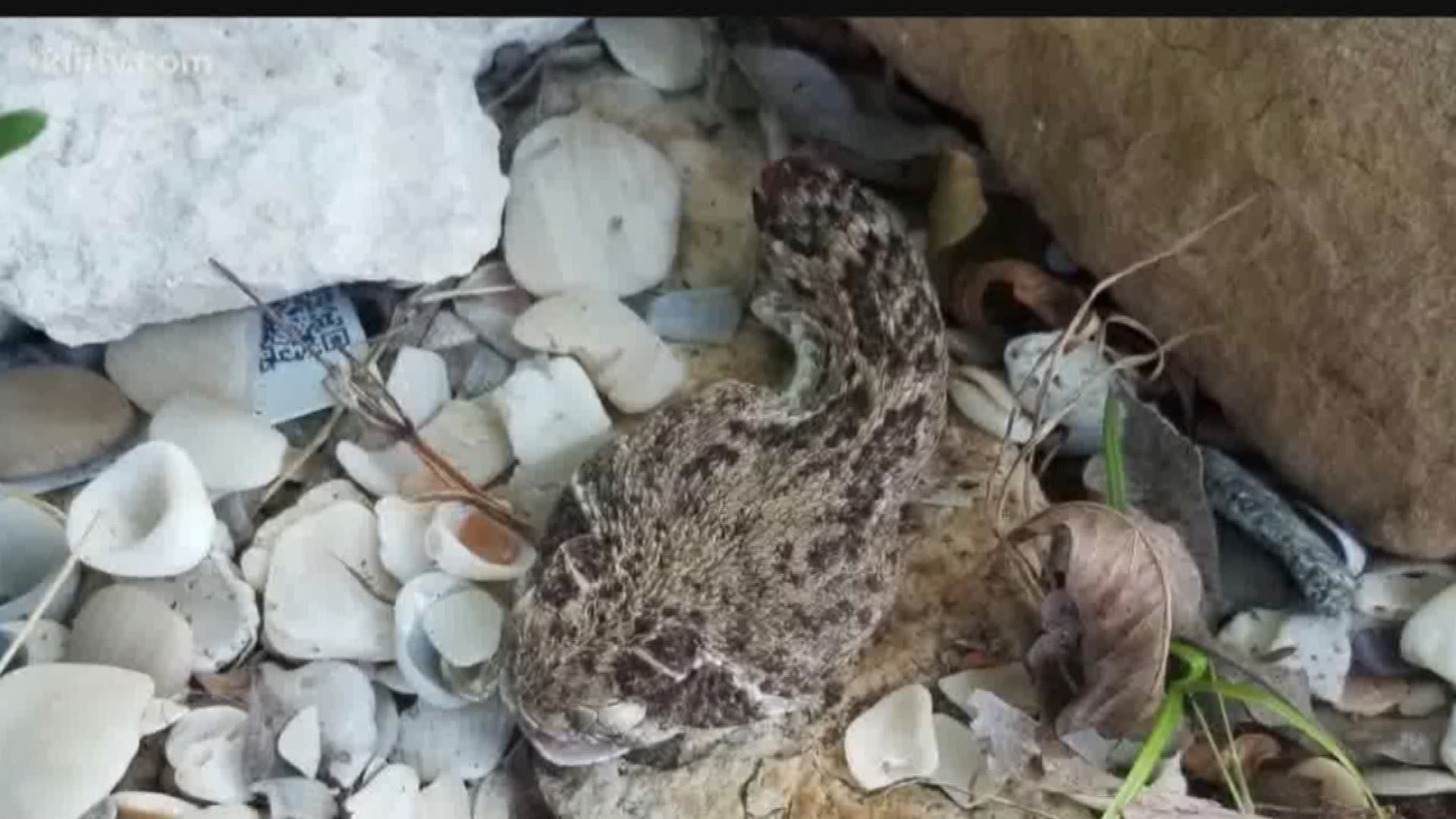Corpus Christi (KIII News) — A Corpus Christi, Texas man is still recovering after he was bitten by a rattlesnake, even after the snake had already been beheaded.
It happened the weekend of May 27 at a residence near Lake Corpus Christi, Texas.
Jennifer Sutcliffe and her husband were doing weekend yard work when she spotted a four-foot rattlesnake. She said her husband quickly took his shovel and severed the snake's head, but moments later when he bent down to dispose of the snake, the snake's head bit him.
"Which in that case since there is nobody, it released all its venom into him at that point, so he had a lot of venom," Sutcliffe said.
Sutcliffe called 911 and began driving her husband to the hospital. He immediately began having seizures, lost his vision and experienced internal bleeding.
Sutcliffe couldn't get her husband to the hospital fast enough, so she met up with an ambulance.
"They HALO-Flighted him into the hospital," Sutcliffe said.
Sutcliffe said the first 24 hours were the worst. Doctors said her husband might not make it, even after giving him vast amounts of antivenom.
"A normal person who is going to get bit is going to get two to four doses of antivenom," Sutcliffe said. "He had to have 26 doses."
Sutcliffe's husband is now in stable condition, but his kidney function is still weak. Trauma surgeon Michael Halpert said although dying from a snake bite is rare, it happens.
"There are about 6,000 to 8,000 snake bites per year in the country, and 10-12 people die," Halpert said.
In the movies, people try to suck out the venom themselves or some other home remedy.
"No, you don't want to do any of that," Halpert said. "You just want to keep the victim calm, keep the bitten area above the level of the heart slightly, and get the patient to the nearest emergency room."

